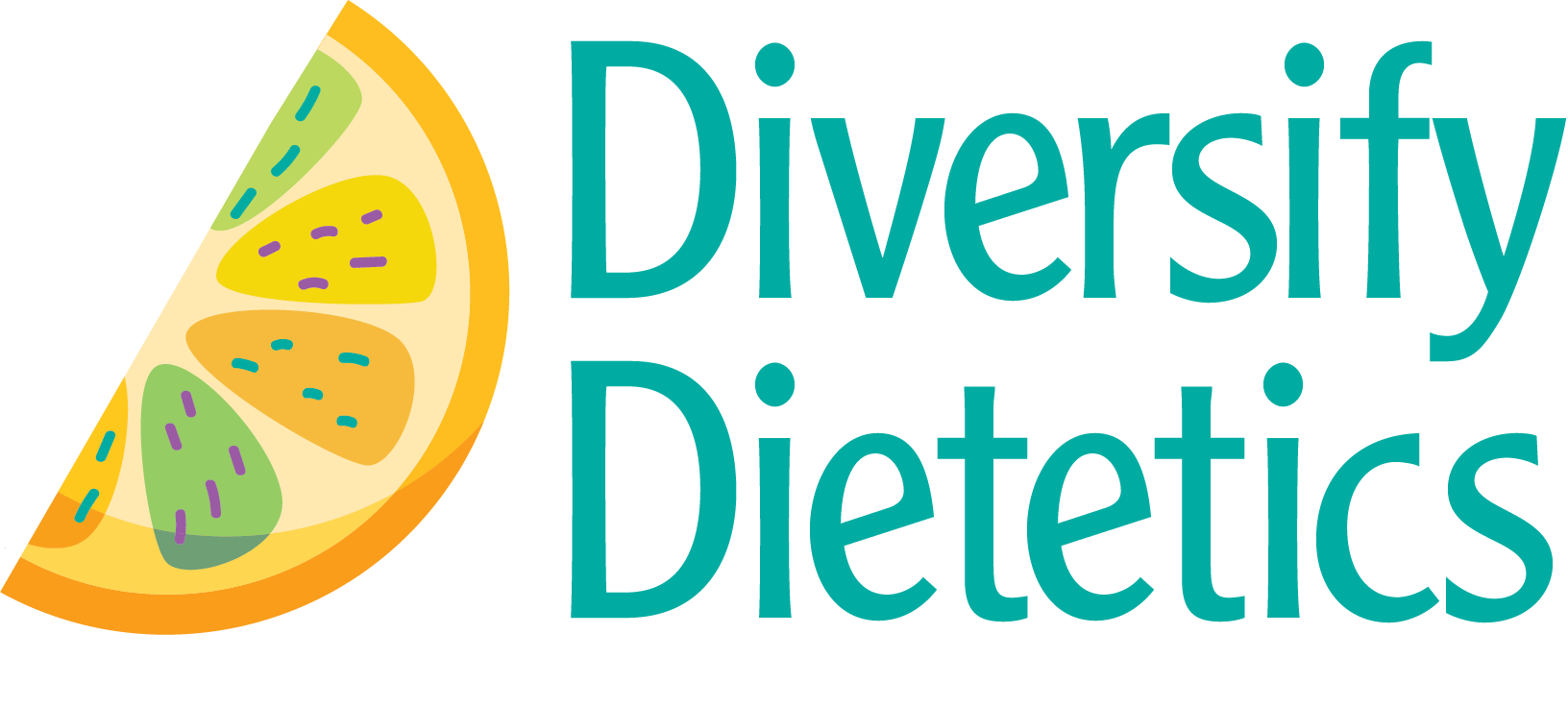The Academy, Diversity, and the Push Towards a Brighter Tomorrow
If you saw our Instagram live video, you heard about the experiences and observations that sparked our interest in creating Diversify Dietetics (if you didn’t don’t worry, there will be a permanently placed video on our Facebook page). The Academy of Nutrition and Dietetics ("The Academy) has also recognized this issue for years. Some of their initiatives to diversify the field include :
- Diversity Mentoring Toolkit for Educators
- Diversity Awards and Grants - membership required
- Member Interest Groups - membership required
- The Diversity Committee - membership required
- Official Diversity Philosophy
- Cultural Competency Resources
- Food and Nutrition Information in Multiple Languages
- Mentoring programs - membership required
- Pan-ethnic images in all ADA messaging, such as membership brochures, official Web site, marketing materials
My first exposure to The Academy’s initiatives was the May 2013 Supplement to the Journal of Nutrition and Dietetics. I kept this issue for years referring back to the points and practical applications offered. I even made the cover part of my vision board because it resonated so strongly with me. The key to a brighter tomorrow for dietetics is in mentoring and diversity!
Why Diversity: Clients and Patients
- Perceived ethnic and social differences with health care providers often discourage consumers from seeking care or sharing intimate information required for appropriate treatment.
- Social and ethnic differences between providers and clients can inhibit the development of effective treatment plans.
- Increasing the diversity of the healthcare workforce serves as an effective strategy for addressing racial and ethnic health care disparities.
- Racial and ethnic minority patients are generally more satisfied with their care and are more likely to report receiving higher quality care when treats by a health professional of their own racial or ethnic background
- Diversity leads to increase racial and ethnic minority patient choice and satisfaction
“In all health professions, adequate representation of minority people is necessary for access to and the quality of services for the public. ”
Why Diversity: Students and Practitioners
- Growing evidence shows that diversity in education environments can improve learning outcomes for all students, improving such skills as active thinking, intellectual engagement, and motivations, as well as certain social and civic skills such as an ability to empathize and have a racial and cultural understanding
- Diversity in education environments improves the quality of education for health professionals, which, in turn, improves their ability to treat patients from a wide range of cultural and social backgrounds.
- Encountering and interacting with individuals from a variety of racial and ethnic backgrounds during their training, health professionals are better able to serve the nations’ diverse society by having broadened perspectives of racial, ethnic and cultural similarities and differences.
- Increasing diversity will lead to improving the ability of the healthcare workforce to effectively address the health care needs of all Americans.
Part of the inspired vision board
These points are by no means a comprehensive account of why diversity is important, but they are a few poignant quotes that can easily be shared with other students, educators, and practitioners. We want to increase the awareness of the lack of diversity, provide the reason the mission is so important and the resources to build a community that empowers everyone.
You can find our growing resource list, including the Academy initiatives, here. We will also be highlighting various initiatives on our social media sites so stay tuned!
- Deanna
Sources:
American Dietetic Association. Building Our Future Toolkit for Mentoring Diverse Students for Dietetics Careers. ADA. 2001; 1-145.
Cooper-Patrick L, Gallo JJ, Gonzales JJ, Vu HT, Powe NR, Nelson C, Ford DE. Race, gender, and partnership in the patient-physician relationship. JAMA. 1999; 282: 583-589.
Cooper LA, Powe NR. Disparities in patient experiences, health care processes, and outcomes: the role of patient-provider racial, ethnic, and language concordance. Washington DC: The Commonwealth Fund, 2004.
Gurin P, Dey EL, Hurtado S, Gurin G. Diversity and higher education: theory and impact on educational outcomes. Harvard Education Review. 2002; 72: 330-366.
Stein, K. The Balancing Act of Diversity Initiatives. The Academy of Nutrition and Dietetics. 2013; S6-S12
Teperow C, Howard C, Reede J. Educational benefits of diversity in medical school: a survey of students. Acad Med. 2003; 78: 460-6.


